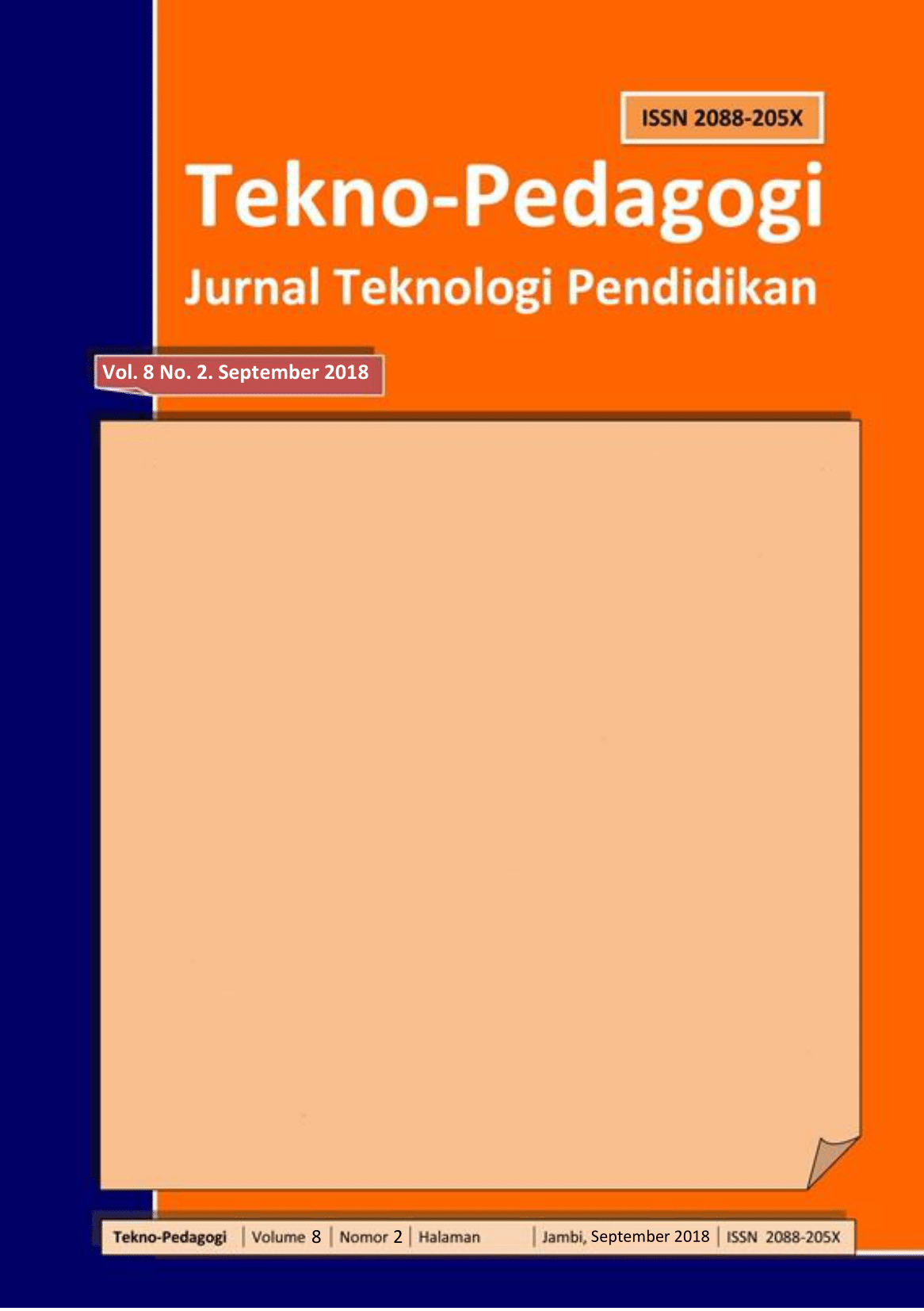The Influence of School Environment and Self-Concept on Students' Interest in Learning in Economics Subjects
DOI:
https://doi.org/10.22437/teknopedagogi.v8i2.32748Keywords:
Interest to Learn, School Environment, Self ConceptAbstract
Interest in learning is a desire and willingness accompanied by deliberate attention and activity and ultimately gives rise to a feeling of enjoyment in the subject, in changes in behavior in the form of knowledge, attitudes and skills. Student interest in learning in the Economics subject of class XI IPS students at SMA Negeri 1 Muaro Jambi is considered to be still far from what is expected. One of the contributing factors is that the school environment is less supportive, apart from that the students' self-concept is also still lacking. This research is a type of Ex Post Facto research that examines events that have occurred and determines the causal factors. With a population of 126 people with a sample of 86 people. Data was collected through an instrument questionnaire with a total of 37 school environment items, 27 self-concept items, and 27 items of student interest in learning. The results of the research show that from the answer to the first hypothesis, the influence of the school environment (X1) on interest in learning (Y) has a significant influence, while the answer to the second hypothesis, the influence of self-concept (X2) on students' interest in learning (Y) has a significant influence, Next, to answer the third hypothesis, testing was carried out jointly, namely the influence of the school environment (X1) and self-concept (X2) on interest in learning (Y). There was a significant influence on the value (Fcount = 174.052>Ftable = 3.11) and R square of 0.807 or 80.7%.
Downloads
References
Akmal, M. (2017). Meningkatkan Minat Belajar Siswa Melalui Model Pembelajaran “Type Make A Match” Pada Mata Pelajaran Kkpi Kelas X Ap 1 SMK Negeri 1 Batanghari. Jurnal, 26-38.
Asyafiq, S. (2016). Berbagai pendekatan dalam pendidikan nilai dan pendidikan kewarganegaraan. Jurnal Dimensi Pendidikan Dan Pembelajaran, 4(1), 29-37.
Dacholfany, M. I. (2017). Inisiasi strategi manajemen lembaga pendidikan Islam dalam meningkatkan mutu sumber daya manusia islami di Indonesia dalam menghadapi era globalisasi. At-Tajdid: Jurnal Pendidikan dan Pemikiran Islam, 1(01).
Khoirunnisaa, K. (2017). Pendidikan Agama Sebagai Komponen Dasar Dalam Pembentukan Manusia Yang Berkualitas. An-Nuha: Jurnal Kajian Islam, Pendidikan, Budaya dan Sosial, 4(1), 93-104.
Rasyid, H. (2015). Membangun generasi melalui pendidikan sebagai investasi masa depan. Jurnal Pendidikan Anak, 4(1).
Rowikarim, A. (2017). Mengajar yang efektif menjadi penentu kualitas seorang guru. Jurnal Pendidikan UNIGA, 7(1), 40-50.
Supriadi, H. (2016). Peranan pendidikan dalam pengembangan diri terhadap tantangan era globalisasi. Jurnal Ilmiah Prodi Manajemen Universitas Pamulang, 3(2), 92-119.
Wahidin, U. (2017). Peran strategis keluarga dalam pendidikan anak. Edukasi Islami: Jurnal Pendidikan Islam, 1(02), 1-9.
Wibawa, S. (2017). Tridharma Perguruan Tinggi (Pendidikan Dan Pengabdian Kepada Masyarakat). Disampaikan dalam Rapat Perencanaan Pengawasan Proses Bisnis Perguruan Tinggi Negeri. Yogyakarta, 29, 01-15.
Widarto, M. P., & Pd, M. (2013). Penelitian Ex Post Facto. Fakultas Teknik: Universitas Negeri Yogyakarta.
Yarissumi, Y. (2017). Hubungan antara Konsentrasi Belajar Peserta Didik dengan Keaktifan Belajarnya pada Bimbingan Belajar Bahasa Inggris Happy Course. KOLOKIUM Jurnal Pendidikan Luar Sekolah, 5(2), 132-142.
Zaini, H., & Dewi, K. (2017). Pentingnya media pembelajaran untuk anak usia dini. Raudhatul Athfal: Jurnal Pendidikan Islam Anak Usia Dini, 1(1), 81-96.
Downloads
Published
How to Cite
Issue
Section
License
Copyright (c) 2018 Ekawarna Ekawarna, Riyo Riyadi, Mindaleni Mindaleni

This work is licensed under a Creative Commons Attribution 4.0 International License.





